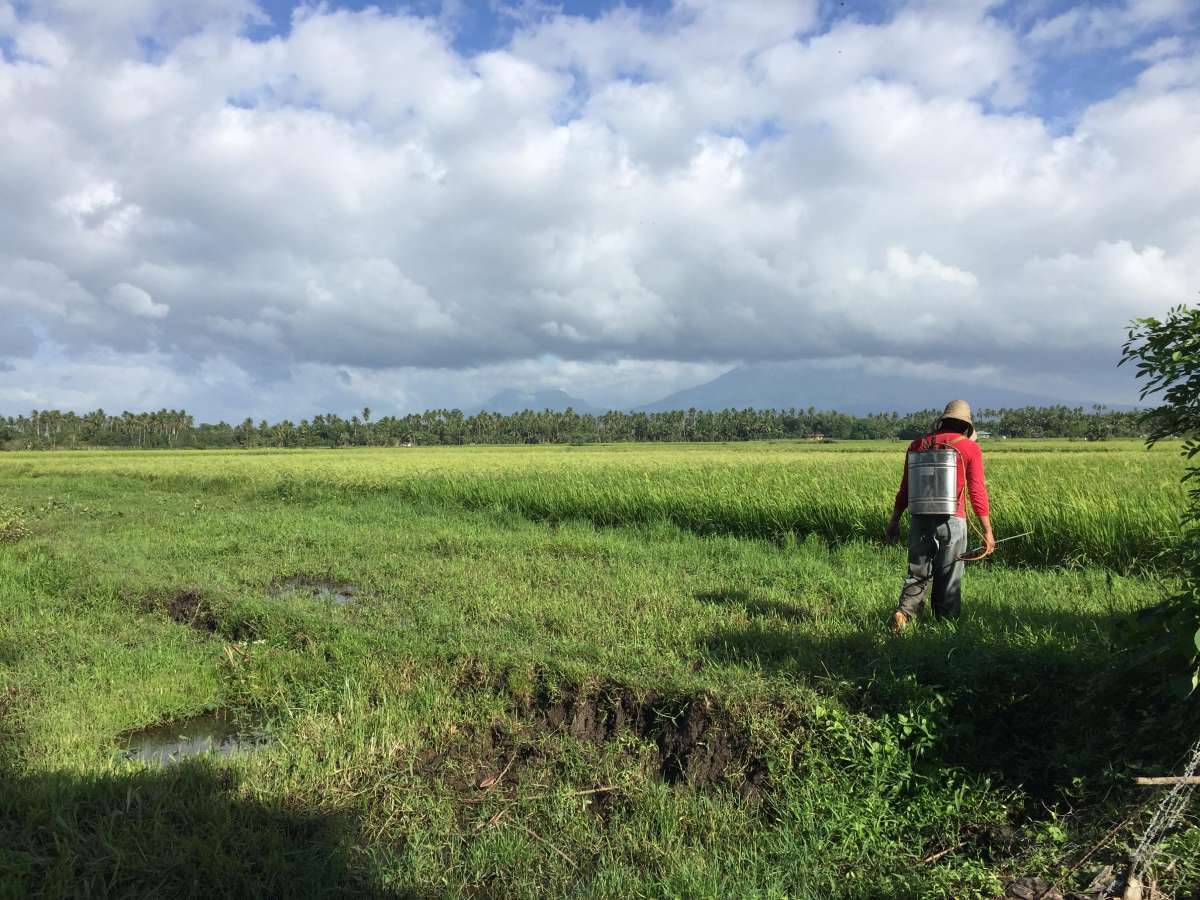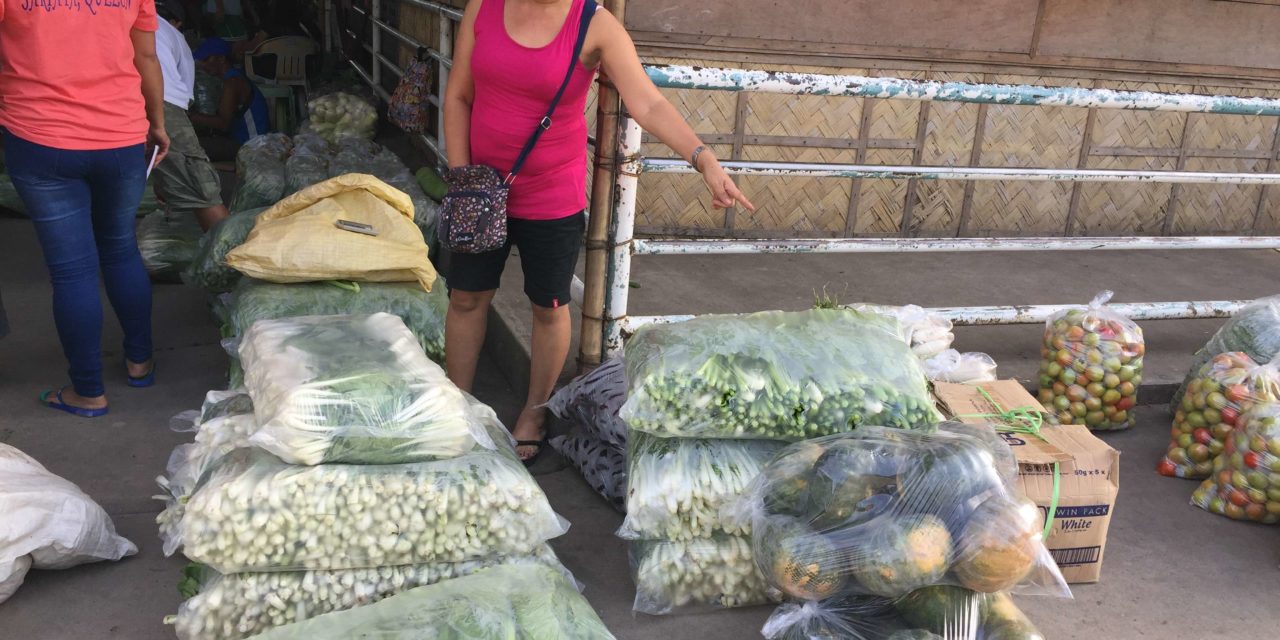I have deep connection with the land. My maternal grandfather was a farmer of coffee and fruit who proudly cultivated his family farm. He woke up before the crack of dawn, ate his breakfast, and ventured out into the small coffee farm with his old but trusty sickle in hand. Later, he would come back with the day’s bounty. He would be tired by that time but a certain happiness engulfed him. This was his routine for the rest of his productive years. At a young age, I understood what hard work meant, that working with your hands created wealth, that perseverance and resilience counted for something. But my grandfather died almost a poor man, with nothing to pass on to his children except farmland and debt. In our rural town in Cavite as in many other places like ours, people look down on farmers. They are oftentimes considered ‘backward’, ‘ignorant’ and ‘underdeveloped’. Growing up, I would hear comments that “farmers are poor because they are lazy.” Yet, I could never reconcile such comments with what my grandfather did day in and day out. As I grew older and mature, I found out there is something more about a farmer’s life and suffering. Indeed, when I became involved in the peasants’ struggle I saw the reasons for farmers’ poverty—that they lay deep in policies, society’s structures, and political economy. At the core of this would be the (lack) of recognition of farmers’ contributions to the economy and society.

Feeding the world under multiple threats
Reports from the United Nations Food and Agricultural Organization (UN-FAO) show that small farmers like my grandfather, family farmers, pastoralists, and peasants feed the world (as much as 80 percent of the world’s food needs). Yet, they do so with less than a quarter of the global farmlands (GRAIN, 2014). For example, small farmers such as Zenaida Javier, who was awarded 2.5 hectares of land under the Philippine state-led agrarian reform program says that “umunlad and agrikultura sa amin. Noong una ang tanim ay niyog, ngayon marami na, saging, mangga, dalanghita, lanzones, at kung anu-ano pa” (Agriculture progressed in our area. Before, only coconut were planted to the land, but now we have banana, mango, local orange, lanzones, and other fruits). Javier is from Sariaya, Quezon, south of Manila, and area dedicated to vegetable growing and trading in Southern Luzon and Bicol. In the Philippines, the average farmland owned or cultivated by small farmers and peasants are less than three hectares.
Land is the primary resource of farmers’ livelihood. Rural cultural values and identities have evolved from the land. But farmers’ land rights, the right to own, control, and cultivate lands, are often contested and hardly recognized in national laws and policies. The threat of land grabbing and land use conversions for non-agricultural uses such as for purposes of real estate, industrial complex, etc., are everyday realities that small farmers and peasants have had to confront. Even in countries which recognize the rights of farmers to land (land-to-the-tiller) under the Constitution and where there is a long-standing and on-going agrarian reform and land redistribution programs, farmers’ land rights are always under threat. Their rights are being violated in various legal and extra-legal ways. The community lands of Zenaida and her neighbors, for example, might soon be converted into property for middle class or upscale housing. Her story is just one of many in the Philippine, or even in Asia. Cambodian farmers have been displaced from their lands to give way to eucalyptus plantations owned by Vietnamese corporations. Similarly, peasants’ houses in Mekar Jaya village, in North Sumatra, Indonesia have been razed to the ground by a Malaysian palm oil company, ironically, after President Joko Widodo had ordered the implementation of agrarian reform. Land remains an arena of violent contestations and dispossession.
Then there is also the increasing concentration of the global food system in fewer hands—or corporations. The planned merger of six giant agricultural corporations (Dow Chemical with Dupont, Monsanto with Bayer AG, Syngenta with ChemChina) in March is the latest example. Over 200 organizations of farmers, religious people, international development and environmental worker have raised the alarm that such a mega-merger will only concentrate market power, worsen the problems caused by industrial agriculture such as environmental degradation, and negatively impact small farmers and landless households. Small farms would further be marginalized and economically hurt with this expansion of industrial agriculture. This will consequently increase in and out-migration and inequality in the countryside. Eliminating poverty and ensuring that vulnerable people such as farmers do not fall back into it will become more difficult under such capital intensive and highly vertically-integrated global food system.
Locally, small farmers and peasants, have had to negotiate and deal with traders and middle persons in getting fair prices for their produce. Their battle cry has been for middle persons to be gone or for them to be provided with multiple options where they can sell their produce, for example through government-created trading posts and other pro-poor farmer policy instruments. For instance, Alan Alob and Dionisio Umali, small farmers from Sariaya, Quezon, claim that the existence of a central trading post, established by the Philippine Department of Agriculture and operates like a cooperative and foundation, has offered them multiple options for selling their produce and cut down the cost of transportation to their benefit. However, not many rural communities have such facilities and those with none have suffered at the behest of local traders.

Global recognition
Small farmers and peasants continue to struggle for recognition under national and global policies/laws and human rights instruments. In particular, the rights of peasant to land are not codified in international human rights law despite being central to numerous economic, social and cultural rights, and for achieving for many civil and political rights. Many national laws and policies that uphold the right to land and role of small farmers and peasants have been borne out of their decades-long struggles. Global institutions such as the UN-FAO have acknowledged the massive contribution and investment that small and family farmers and peasants have made to global and national economies. There is currently a global campaign to enact a global Convention on the Rights of Peasants and this points toward the right direction. But much still needs to be done, as shown in many struggles to defend life, local food systems, and land and territories by small farmers and peasants.
What can we do? Farmers, like my grandfather, died eking out a living from the land as well as feeding their families and communities. The reality is that small farmers and peasants, globally, are ageing and in dire need of a next generation of tillers. Let us not allow them to die or age in vain. Let us support our local food systems—our small farmers and peasants’ produce; let us thank a farmer today and every day. Let us honor them by recognizing and demanding that public policies and our everyday consumption support their land rights as well as sustainable peasant and small farmer agriculture. There is a life and future in farming, and this is something that all of us have something can contribute to.


![[Press Release] Landmark conference on land grabbing: large-scale agricultural investments do undermine food security](https://focusweb.org/wp-content/themes/Extra/images/post-format-thumb-text.svg)
![[IN PHOTOS] In Defense of Human Rights and Dignity Movement (iDEFEND) Mobilization on the fourth State of the Nation Address (SONA) of Ferdinand Marcos, Jr.](https://focusweb.org/wp-content/uploads/2025/07/1-440x264.jpg)


![[IN PHOTOS] In Defense of Human Rights and Dignity Movement (iDEFEND) Mobilization on the fourth State of the Nation Address (SONA) of Ferdinand Marcos, Jr.](https://focusweb.org/wp-content/uploads/2025/07/1-150x150.jpg)

